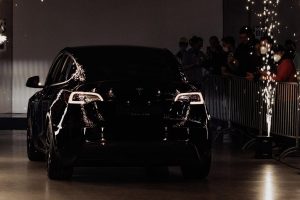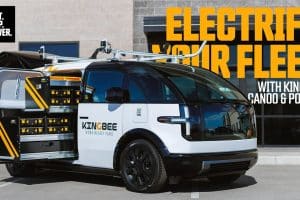Key Points
- ⚖️ A federal appeals court ruled that Tesla can ban workers from wearing union shirts on the production line.
- 🤝 The court declared Tesla’s “Team Wear” uniform policy as advancing a legitimate employer interest.
- 📜 The ruling nullifies the National Labor Relations Board (NLRB) decision from last year.
- 🚫 The court agreed with Tesla that the initial NLRB ruling calling the ban unlawful was “irrational.”
- 🏭 Tesla argued that United Auto Workers (UAW) shirts in general assembly caused “mutilations” to produced vehicles.
- 👕 Tesla’s approved uniforms aim to facilitate “visual management” for team leads to identify employees.
- 🗓️ The ruling follows Tesla’s request for court review in September and longstanding opposition to the union from CEO Elon Musk.
A federal appeals court has ruled that Tesla is allowed to ban workers from wearing union shirts on the production line after the National Labor Relations Board (NLRB) claimed last year that the automaker broke labor laws in doing so.
The U.S. Court of Appeals for the Fifth Circuit ruled on Tuesday that Tesla’s ban of union shirts on production lines is not in violation of federal labor laws, which officially nullifies the NLRB decision from last year (via Bloomberg Law).
The court also said that Tesla’s “Team Wear” uniform policy was advancing a legitimate employer interest, adding that it didn’t hinder union communications, nor did it affect time spent away from the job. In addition, the court echoed Tesla’s claim that the NLRB’s initial ruling was “irrational,” saying that this particular case doesn’t go against the workers’ right to unionize under the National Labor Relations Act (NLRA).
“We agree with Tesla,” the appeals court writes in the ruling, regarding Tesla’s claim that the NLRB irrationally called the ban unlawful. “The NLRA does not give the NLRB the authority to make all company uniforms presumptively unlawful. We grant Tesla’s petition for review, deny the NLRB’s application for enforcement, and vacate the Board’s decision.”
In the document, the court reiterates that Tesla argued team members wearing United Auto Workers (UAW) shirts in general assembly at the Fremont factory caused “mutilations” to produced vehicles, which was the initial cause of the uniform change in 2017. Although Tesla workers couldn’t wear non-uniform clothing that would risk mutilation, the company’s employees could wear approved clothes with smaller union stickers.
Additionally, the court noted that Tesla said its approved uniforms would encourage “visual management,” easily letting team leads identify and distinguish various employees, including those in general assembly.
The ruling comes after Tesla urged the court to review the UAW- and NLRB-led claims of violations in September and after a long history of vocal opposition to the union from CEO Elon Musk.





